Facing criticism from the US, the Department of Special Investigation is leading efforts to tackle a serious global problem affecting the kingdom. Maxmilian Wechsler reports
By Maxmilian Wechsler
By Maxmilian Wechsler
| HUMAN trafficking is a form of modern-day slavery. It involves the use of force, fraud or coercion to take advantage of and exploit other human beings for sexual purposes or for labor under conditions few would willingly accept. In almost every country on the planet the traffickers have created an international market for the trade of men, women and even children, usually targeting people with limited employment opportunities who hope for a better life. |
The lengthy and detailed US Trafficking in Persons (TIP) 2013 report takes a dismal view of Thailand’s anti-human trafficking efforts, and alleges that corrupt practices by Thai government officials in some government agencies are directly responsible for letting traffickers off the hook (see sidebar). The language is unusually strong and definitely not diplomatic, but some in the Thai law enforcement questioned the accuracy of the report.
To put a focus on the scourge of human trafficking and what Thailand is doing about it, The BigChilli spoke to Paisith Sungkahapong, Senior Special Case Inquiry Official (Level 9) in charge of the Anti-Human Trafficking Center (AHTC) at the Department of Special Investigation (DSI).
Mr Paisith explained that the Thai government put human trafficking on the national agenda as a priority in 2004. The Ministry of Justice assigned the DSI to study the problem in 2005 and in 2008 the DSI set up the AHTC within the Bureau of Foreign Affairs and Transnational Crime. In the beginning of 2011, corresponding with the new structure of the DSI, the anti-human trafficking division was set up under the supervision of the Director-General of the DSI. Mr Paisith was appointed to his position in April 2011.
To put a focus on the scourge of human trafficking and what Thailand is doing about it, The BigChilli spoke to Paisith Sungkahapong, Senior Special Case Inquiry Official (Level 9) in charge of the Anti-Human Trafficking Center (AHTC) at the Department of Special Investigation (DSI).
Mr Paisith explained that the Thai government put human trafficking on the national agenda as a priority in 2004. The Ministry of Justice assigned the DSI to study the problem in 2005 and in 2008 the DSI set up the AHTC within the Bureau of Foreign Affairs and Transnational Crime. In the beginning of 2011, corresponding with the new structure of the DSI, the anti-human trafficking division was set up under the supervision of the Director-General of the DSI. Mr Paisith was appointed to his position in April 2011.
| Trafficking definition “The 2008 Anti-Trafficking in Persons Act gives a precise definition of human trafficking,” said Mr Paisith, “but there is misunderstanding as to what it actually is on the part of many if not most Thai people, the media and even some authorities. Trafficking is often mixed up with smuggling, illegal labor and prostitution. “The definition of human trafficking is clearly stated in sections 4 and 6 of the Anti-Trafficking Act,” he explained, “and there are three elements involved: the act, or what is done; the means, how it is done; and the purpose, or why it is done. The act entails procuring, buying, selling, transporting, detaining or confining, harboring, or the receipt of human beings. “The means involves threats or actual use of force, abduction, fraud, deception, abuse of power, or of giving money or benefits to achieve control of another person. “Purpose concerns exploitation by seeking benefits from prostitution, production or distribution of pornographic materials and other forms of sexual exploitation; slavery causing another person to be a beggar, forced labor or service; coerced removal of organs for the purpose of trade; and similar nefarious practices, regardless of whether consent is given by the person affected. |
“So in order to make a case for violation of the Anti-Trafficking Act, these three elements must be present to separate it from human smuggling or prostitution. Let’s take an example: If you are bringing somebody from another country to Thailand and they agree to go with you and pay you to take them, and upon arrival you take their money and let them go, this is not human trafficking, but human smuggling, because the person came voluntarily and wasn’t forced or deceived.
“However, if you lure someone to come to Thailand and promise them a good job beforehand, like working in a restaurant, but instead force them to work on a fishing trawler, in a brothel or do anything else they are unwilling to do, then it is human trafficking.”
Concerted effort
Mr Paisith noted that the AHTC unit currently has more than 20 officers stationed in Bangkok, with more staff expected in the near future. “In addition, we can get assistance from other DSI bureaus. There are operational units which can support us when we go on search, arrest or rescue missions and so on.
“Human trafficking has been recognized as a major problem by the government and there are in fact many agencies working together to counter it. The DSI and the Royal Thai Police (RTP) are law enforcement agencies with a duty to enforce the law of the land, and a number of other government agencies play different roles. The main agency dealing with human trafficking in Thailand is the Ministry of Social Development and Human Security, which basically takes care of the victims by managing rehabilitation efforts and looking after their general welfare.
“The DSI and the RTP are the only two law enforcement agencies working on human trafficking cases in Thailand. We have an agreement separating our responsibilities. The DSI is responsible for special cases of a complicated nature, transnational cases and cases involving organized crime and/or influential figures, and the RTP is responsible for everything else.
“The DSI conducts investigations, suppression and arrests, and works with social workers on the cases. We also cooperate with the Office of the Attorney General (OAG), which plays a part in the prosecution stage, and we work with international organizations such as the United Nations Office on Drug and Crime (UNODC). They have enhanced capabilities and a sizable budget for anti-human trafficking efforts. At the moment, DSI is working with the UNODC and the US government on a major anti-trafficking project.
“We are also working with the United Nations Inter-Agency Projects (UNIAP), an organization established in 2000 with a mandate to facilitate a stronger and more coordinated response to trafficking in the Greater Mekong Sub-region.
“We also cooperate with COMMIT Process, an association of six nations in the Greater Mekong Sub-Region – Cambodia, China, Lao PDR, Myanmar, Thailand and Vietnam ̶ committed to eradicating human trafficking in the region. Other groups we are working with are the Asia Regional Trafficking in Persons Project, an organization run by the Australian government; Interpol, the US Federal Bureau of Investigation (FBI), and US Immigration and Customs Enforcement (ICE), along with other law enforcement agencies including the Myanmar Police, Australian Federal Police (AFP), and the Serious Organized Crime Agency (SOCA).”
Mr Paisith said that his unit receives many tips and information regarding human trafficking from various NGOs who also provide assistance in terms of dealing with victims.
Thailand’s central role
Thailand is a source, transit point and destination for human trafficking in Southeast Asia. “The first point involves mostly Thai women who are trafficked to work as prostitutes in other Asian countries and in Europe,” said Mr Paisith. “As for transit, that is likely to involve foreigners coming from countries like Bangladesh, Iran or Pakistan who want to go to a third country. They are smuggled to Thailand first and then on to countries such as Australia, Canada and the US.
“As a destination – and this is the biggest problem – many nationals from neighboring countries like Cambodia, Lao PDR and Myanmar, especially Tai Yai [a Myanmar ethnic minority] women are being trafficked to Thailand and forced to work here as prostitutes in massage parlors, karaoke bars, brothels and so on. As well, laborers from these countries are forced to work in factories in Bangkok or in Samut Sakhon, on fishing trawlers out of Chonburi or southern Thailand or as beggars on the street. The latter category includes many Cambodians.
“There are over one million illegal migrants in Thailand, and a fair number of them are victims of the human trafficking gangs, which are controlled by crime syndicates based both in Thailand and abroad,” said Mr Paisith. He explained that some of the gangs are small, consisting of just a few individuals operating mostly in Thailand, while others are quite large, with extensive links in the criminal underground.
“One broker will take the victims to Thailand and another will pick them up and take them to the final destination. This could be Bangkok, South Thailand or provinces in other parts of the country. There’s no one boss for all the syndicates, and sometimes the entire business is done by only two brokers. In any case, Thai criminals almost always play a major role in human trafficking in this country,” Mr Paisith said. “However, in the case of Thai women being trafficked and exploited outside of Thailand, the boss is probably a foreigner, like the owner of a bar, etc.
“We have found that most of the recruiters and brokers are nationals of the same country of origin as the victims. For example, fishing trawlers often use the labor of unwilling Myanmar workers, and there’s always someone who can speak their language and who controls them as well.”
“However, if you lure someone to come to Thailand and promise them a good job beforehand, like working in a restaurant, but instead force them to work on a fishing trawler, in a brothel or do anything else they are unwilling to do, then it is human trafficking.”
Concerted effort
Mr Paisith noted that the AHTC unit currently has more than 20 officers stationed in Bangkok, with more staff expected in the near future. “In addition, we can get assistance from other DSI bureaus. There are operational units which can support us when we go on search, arrest or rescue missions and so on.
“Human trafficking has been recognized as a major problem by the government and there are in fact many agencies working together to counter it. The DSI and the Royal Thai Police (RTP) are law enforcement agencies with a duty to enforce the law of the land, and a number of other government agencies play different roles. The main agency dealing with human trafficking in Thailand is the Ministry of Social Development and Human Security, which basically takes care of the victims by managing rehabilitation efforts and looking after their general welfare.
“The DSI and the RTP are the only two law enforcement agencies working on human trafficking cases in Thailand. We have an agreement separating our responsibilities. The DSI is responsible for special cases of a complicated nature, transnational cases and cases involving organized crime and/or influential figures, and the RTP is responsible for everything else.
“The DSI conducts investigations, suppression and arrests, and works with social workers on the cases. We also cooperate with the Office of the Attorney General (OAG), which plays a part in the prosecution stage, and we work with international organizations such as the United Nations Office on Drug and Crime (UNODC). They have enhanced capabilities and a sizable budget for anti-human trafficking efforts. At the moment, DSI is working with the UNODC and the US government on a major anti-trafficking project.
“We are also working with the United Nations Inter-Agency Projects (UNIAP), an organization established in 2000 with a mandate to facilitate a stronger and more coordinated response to trafficking in the Greater Mekong Sub-region.
“We also cooperate with COMMIT Process, an association of six nations in the Greater Mekong Sub-Region – Cambodia, China, Lao PDR, Myanmar, Thailand and Vietnam ̶ committed to eradicating human trafficking in the region. Other groups we are working with are the Asia Regional Trafficking in Persons Project, an organization run by the Australian government; Interpol, the US Federal Bureau of Investigation (FBI), and US Immigration and Customs Enforcement (ICE), along with other law enforcement agencies including the Myanmar Police, Australian Federal Police (AFP), and the Serious Organized Crime Agency (SOCA).”
Mr Paisith said that his unit receives many tips and information regarding human trafficking from various NGOs who also provide assistance in terms of dealing with victims.
Thailand’s central role
Thailand is a source, transit point and destination for human trafficking in Southeast Asia. “The first point involves mostly Thai women who are trafficked to work as prostitutes in other Asian countries and in Europe,” said Mr Paisith. “As for transit, that is likely to involve foreigners coming from countries like Bangladesh, Iran or Pakistan who want to go to a third country. They are smuggled to Thailand first and then on to countries such as Australia, Canada and the US.
“As a destination – and this is the biggest problem – many nationals from neighboring countries like Cambodia, Lao PDR and Myanmar, especially Tai Yai [a Myanmar ethnic minority] women are being trafficked to Thailand and forced to work here as prostitutes in massage parlors, karaoke bars, brothels and so on. As well, laborers from these countries are forced to work in factories in Bangkok or in Samut Sakhon, on fishing trawlers out of Chonburi or southern Thailand or as beggars on the street. The latter category includes many Cambodians.
“There are over one million illegal migrants in Thailand, and a fair number of them are victims of the human trafficking gangs, which are controlled by crime syndicates based both in Thailand and abroad,” said Mr Paisith. He explained that some of the gangs are small, consisting of just a few individuals operating mostly in Thailand, while others are quite large, with extensive links in the criminal underground.
“One broker will take the victims to Thailand and another will pick them up and take them to the final destination. This could be Bangkok, South Thailand or provinces in other parts of the country. There’s no one boss for all the syndicates, and sometimes the entire business is done by only two brokers. In any case, Thai criminals almost always play a major role in human trafficking in this country,” Mr Paisith said. “However, in the case of Thai women being trafficked and exploited outside of Thailand, the boss is probably a foreigner, like the owner of a bar, etc.
“We have found that most of the recruiters and brokers are nationals of the same country of origin as the victims. For example, fishing trawlers often use the labor of unwilling Myanmar workers, and there’s always someone who can speak their language and who controls them as well.”
Trafficking penalties and complications
“The penalty for human trafficking in Thailand is a minimum of four years and a maximum of 20 years for one count, but we often charge suspects with many counts that make the punishment more severe. Human trafficking is a big problem facing Thailand and we need all the deterrents at our disposal. We also need the help of concerned citizens and the media. Sometimes we ask a television news crew to accompany us on a raid. We want to show the public how we work, and what we are up against, and that will help in terms of prevention as well.
“Human trafficking is related to other crimes like passport and document forgery. Many of those trafficked will stay in transit in Thailand for a few days or weeks before their passport is ready. We have arrested some forgery gangs already. We have evidence that information in the passports of some of the victims has been altered, especially their ages. This makes it difficult to work cases like this because we have to prove that victims are either underage or forced to work in the venues we raid, otherwise it is difficult to charge the owners and other people behind the racket (according to Thai law, a person aged under 18 is automatically considered a victim, regardless of whether or not they agreed to the work they are doing).”
Some of major AHTC operations
Mr Paisith mentioned a long list of operations the AHTC has conducted and the following are some major examples:
In 2011 the AHTC investigated a case in Narathiwat province involving sexual exploitation. The AHTC received a request from the Lao PDR embassy and one local NGO to rescue two Laotian girls forced into prostitution at a karaoke bar in Sungai Golok. With the assistance from the Thai military and the police, the two girls were rescued together with 41 other Laotians, 20 of whom were determined to be victims of human trafficking. Five people were arrested and two of these have been sentenced, each given jail sentences of over 50 years. The other three suspects are awaiting the conclusion of legal proceedings.
Last year the AHTC and the Royal Thai Navy searched a fishing pier in Samae San Sub-District of Chonburi province and rescued 28 Myanmar fishermen, 11 of whom were determined to be victims of trafficking. One Myanmar broker and two Thai fishing boat owners were arrested. The first broker was sentenced to 33 years in prison. The other two cases are in the trial process.
This year the Myanmar Police Force and the United Nations Inter-Agency Projects requested assistance from the AHTC to rescue Myanmar victims who were forced to work in a corn canning factory in Kanchanaburi province. Fourteen male Myanmar victims were rescued; two Myanmar brokers, arrested.
“The penalty for human trafficking in Thailand is a minimum of four years and a maximum of 20 years for one count, but we often charge suspects with many counts that make the punishment more severe. Human trafficking is a big problem facing Thailand and we need all the deterrents at our disposal. We also need the help of concerned citizens and the media. Sometimes we ask a television news crew to accompany us on a raid. We want to show the public how we work, and what we are up against, and that will help in terms of prevention as well.
“Human trafficking is related to other crimes like passport and document forgery. Many of those trafficked will stay in transit in Thailand for a few days or weeks before their passport is ready. We have arrested some forgery gangs already. We have evidence that information in the passports of some of the victims has been altered, especially their ages. This makes it difficult to work cases like this because we have to prove that victims are either underage or forced to work in the venues we raid, otherwise it is difficult to charge the owners and other people behind the racket (according to Thai law, a person aged under 18 is automatically considered a victim, regardless of whether or not they agreed to the work they are doing).”
Some of major AHTC operations
Mr Paisith mentioned a long list of operations the AHTC has conducted and the following are some major examples:
In 2011 the AHTC investigated a case in Narathiwat province involving sexual exploitation. The AHTC received a request from the Lao PDR embassy and one local NGO to rescue two Laotian girls forced into prostitution at a karaoke bar in Sungai Golok. With the assistance from the Thai military and the police, the two girls were rescued together with 41 other Laotians, 20 of whom were determined to be victims of human trafficking. Five people were arrested and two of these have been sentenced, each given jail sentences of over 50 years. The other three suspects are awaiting the conclusion of legal proceedings.
Last year the AHTC and the Royal Thai Navy searched a fishing pier in Samae San Sub-District of Chonburi province and rescued 28 Myanmar fishermen, 11 of whom were determined to be victims of trafficking. One Myanmar broker and two Thai fishing boat owners were arrested. The first broker was sentenced to 33 years in prison. The other two cases are in the trial process.
This year the Myanmar Police Force and the United Nations Inter-Agency Projects requested assistance from the AHTC to rescue Myanmar victims who were forced to work in a corn canning factory in Kanchanaburi province. Fourteen male Myanmar victims were rescued; two Myanmar brokers, arrested.
| Rohingya problem Mr Paisith stressed that the case of the Rohingya from Myanmar who end up in Thailand belongs in the human smuggling category and, unless they find evidence to suggest otherwise, are not considered victims of human trafficking. “They are trying to find better place to live, so they sail boats from Myanmar. Actually, they don’t want to come to Thailand but sometimes they are stuck here when their boat sinks off Thai waters. This means that the Thai government has to look after them on humanitarian grounds. |
“We would like the Rohingya in Thailand to go somewhere else, but since no one wants to accept them, they have become our responsibility. The international organizations are unable to resettle them yet and they would like to set up camps in Thailand, but the government and most Thais feel that we have too many refugee camps already,” said Mr Paisith.
US applies pressure and assistance
Mr Paisith acknowledged that in the latest TIP Report released by the US State Department, Thailand receives a lot of blame for the global human trafficking problem and is given a Tier 2 ranking. The State Department classifies each country into one of three tiers based on the extent of their governments’ efforts. Tier 1 is the highest ranking, though this designation does not mean that a country has no human trafficking problem. Tier 3 is the lowest classification.
“The TIP report is accepted worldwide, so we have to take notice. The US warned us that if we don’t improve in 2014 Thailand will fall down to Tier 3 which could result in sanctions. Therefore, we are working very hard in order to improve our ranking to Tier 2,” said Mr Paisith, noting that his unit now has 15 cases under investigation.
He added that the US is not only directing criticism at Thailand, but also giving assistance, especially in terms of training. For example, last July they brought a group of Thai senior officers from the DSI, the Royal Thai Police, and the OAG agencies to the US for observing in methods for suppressing human trafficking.
US report’s finger-pointing
EXCERPTS from the TIP report: “The government of Thailand does not fully comply with the minimum standards for the elimination of trafficking. The government has not shown sufficient evidence of increasing efforts to address human trafficking compared to the previous year; therefore, Thailand is placed on Tier 2 Watch List for a fourth consecutive year. Thailand was granted a waiver from an otherwise required downgrade to Tier 3 because the government has a written plan that, if implemented, would constitute making significant efforts to meet the minimum stand for the elimination of trafficking and is devoting sufficient resources to implement that plan.”
Under headline “Recommendations for Thailand,” the report makes these recommendations, among others: “Significantly improve efforts to proactively identify victims of trafficking among vulnerable populations, particularly undocumented migrants and deportees; provide incentives for law enforcement officials to increase the numbers of victims identified; increase efforts to prosecute and convict sex and labor trafficking offenders; consider the prosecution of trafficking cases; increase efforts, particularly through the Department of Special Investigation and the establishing a dedicated court division, or take other measures to expedite Office of National Anti-Corruption Commission, to investigate, prosecute, and convict officials engaged in trafficking-related corruption; restrict bail to alleged trafficking offenders to prevent flight.”
Under the subtitle “Prosecution”, the report says: “The Thai government prosecuted and convicted fewer trafficking offenders in 2012 than it did in the previous year. The government reported investigating 305 trafficking-related cases in 2012, an increase from 83 in 2011; similar to previous years, it did not provide sufficient information to determine how many of these cases actually constituted trafficking. Despite the increase in potential investigations, the number of prosecutions significantly decreased from 67 in 2011 to only 27 in 2012; the government convicted 10 offenders in four trafficking-related cases, compared with 12 convicted in 2011. Sentences for convicted offenders ranged from three to 19 years’ imprisonment.”
“Corruption remained widespread among Thai law enforcement personnel, creating an enabling environment for human trafficking to prosper. Allegations of trafficking-related corruption persisted during the year, including in cases of sex trafficking and forced labor of migrants. There were credible reports that corrupt officials protected brothels, other commercial sex venues, and seafood and sweatshop facilities from raids and inspections, colluded with traffickers, used information from victim testimony to weaken cases, and engaged in commercial sex acts with child trafficking victims.
“In addition to the well known corruption of local-level police officers, there were also protective relationships between central-level specialist police officers and the trafficking hotspot regions to which they were assigned. Thai police officers and immigration officials reportedly extorted money or sex from Burmese citizens detained in Thailand for immigration and sold Burmese migrants unable to pay labor brokers and sex traffickers.”
Several Thai officials involved in anti-human trafficking admitted that there’s a lot of work to be done in the field in Thailand but called the TIP report “too harsh, biased and one-sided.” They questioned the accuracy of the information in the report and said some sources may have a hidden agenda, without elaborating. One official said: “Thailand has been very generous towards the Rohingya by allowing them to stay in Thailand as other countries would push their boats back to the sea. Even Myanmar wouldn’t repatriate them. Maybe this should be also mentioned in the report as well.”
US applies pressure and assistance
Mr Paisith acknowledged that in the latest TIP Report released by the US State Department, Thailand receives a lot of blame for the global human trafficking problem and is given a Tier 2 ranking. The State Department classifies each country into one of three tiers based on the extent of their governments’ efforts. Tier 1 is the highest ranking, though this designation does not mean that a country has no human trafficking problem. Tier 3 is the lowest classification.
“The TIP report is accepted worldwide, so we have to take notice. The US warned us that if we don’t improve in 2014 Thailand will fall down to Tier 3 which could result in sanctions. Therefore, we are working very hard in order to improve our ranking to Tier 2,” said Mr Paisith, noting that his unit now has 15 cases under investigation.
He added that the US is not only directing criticism at Thailand, but also giving assistance, especially in terms of training. For example, last July they brought a group of Thai senior officers from the DSI, the Royal Thai Police, and the OAG agencies to the US for observing in methods for suppressing human trafficking.
US report’s finger-pointing
EXCERPTS from the TIP report: “The government of Thailand does not fully comply with the minimum standards for the elimination of trafficking. The government has not shown sufficient evidence of increasing efforts to address human trafficking compared to the previous year; therefore, Thailand is placed on Tier 2 Watch List for a fourth consecutive year. Thailand was granted a waiver from an otherwise required downgrade to Tier 3 because the government has a written plan that, if implemented, would constitute making significant efforts to meet the minimum stand for the elimination of trafficking and is devoting sufficient resources to implement that plan.”
Under headline “Recommendations for Thailand,” the report makes these recommendations, among others: “Significantly improve efforts to proactively identify victims of trafficking among vulnerable populations, particularly undocumented migrants and deportees; provide incentives for law enforcement officials to increase the numbers of victims identified; increase efforts to prosecute and convict sex and labor trafficking offenders; consider the prosecution of trafficking cases; increase efforts, particularly through the Department of Special Investigation and the establishing a dedicated court division, or take other measures to expedite Office of National Anti-Corruption Commission, to investigate, prosecute, and convict officials engaged in trafficking-related corruption; restrict bail to alleged trafficking offenders to prevent flight.”
Under the subtitle “Prosecution”, the report says: “The Thai government prosecuted and convicted fewer trafficking offenders in 2012 than it did in the previous year. The government reported investigating 305 trafficking-related cases in 2012, an increase from 83 in 2011; similar to previous years, it did not provide sufficient information to determine how many of these cases actually constituted trafficking. Despite the increase in potential investigations, the number of prosecutions significantly decreased from 67 in 2011 to only 27 in 2012; the government convicted 10 offenders in four trafficking-related cases, compared with 12 convicted in 2011. Sentences for convicted offenders ranged from three to 19 years’ imprisonment.”
“Corruption remained widespread among Thai law enforcement personnel, creating an enabling environment for human trafficking to prosper. Allegations of trafficking-related corruption persisted during the year, including in cases of sex trafficking and forced labor of migrants. There were credible reports that corrupt officials protected brothels, other commercial sex venues, and seafood and sweatshop facilities from raids and inspections, colluded with traffickers, used information from victim testimony to weaken cases, and engaged in commercial sex acts with child trafficking victims.
“In addition to the well known corruption of local-level police officers, there were also protective relationships between central-level specialist police officers and the trafficking hotspot regions to which they were assigned. Thai police officers and immigration officials reportedly extorted money or sex from Burmese citizens detained in Thailand for immigration and sold Burmese migrants unable to pay labor brokers and sex traffickers.”
Several Thai officials involved in anti-human trafficking admitted that there’s a lot of work to be done in the field in Thailand but called the TIP report “too harsh, biased and one-sided.” They questioned the accuracy of the information in the report and said some sources may have a hidden agenda, without elaborating. One official said: “Thailand has been very generous towards the Rohingya by allowing them to stay in Thailand as other countries would push their boats back to the sea. Even Myanmar wouldn’t repatriate them. Maybe this should be also mentioned in the report as well.”

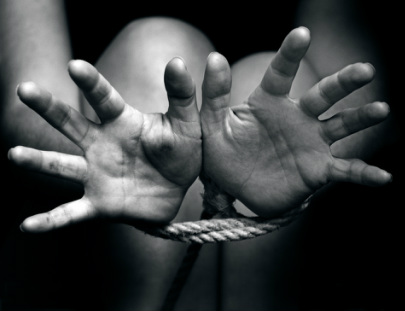
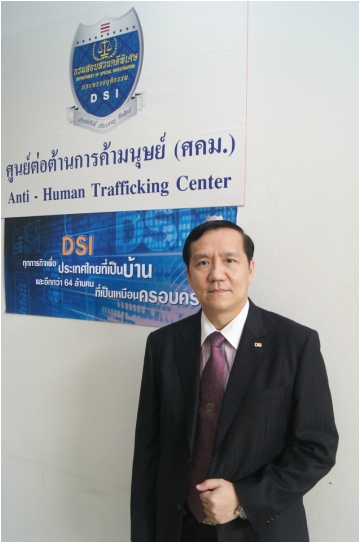
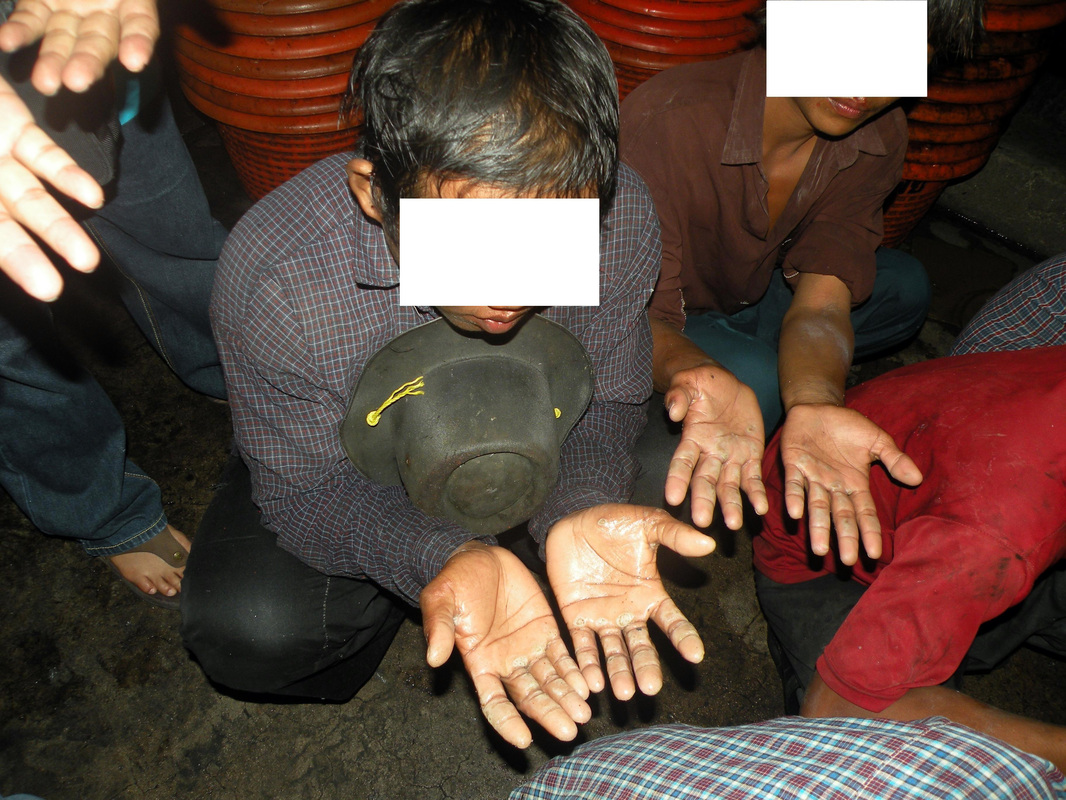
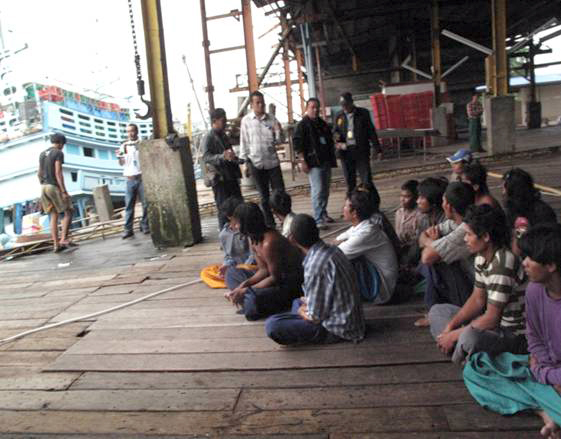
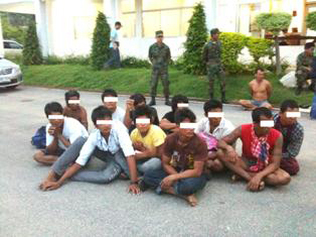
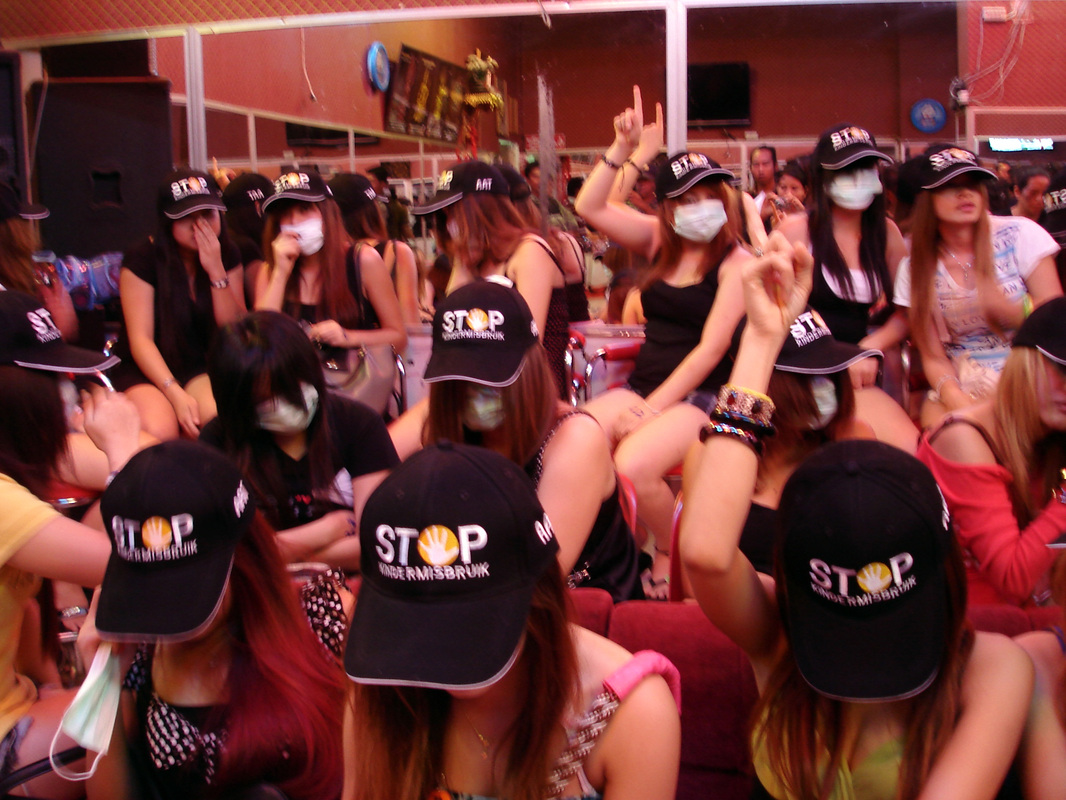
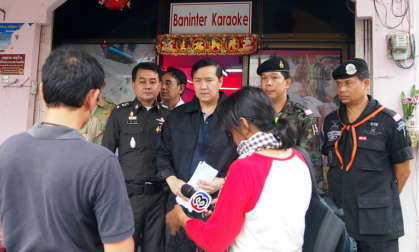
 RSS Feed
RSS Feed
















